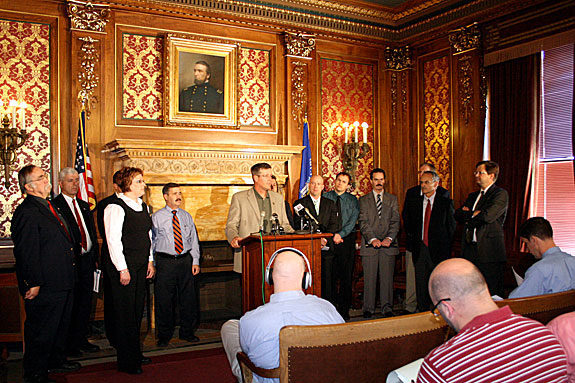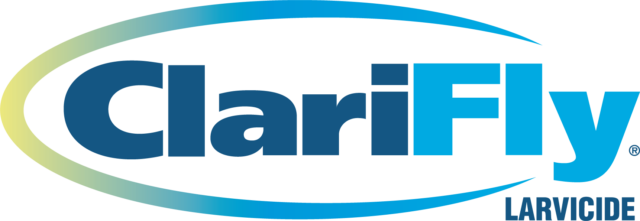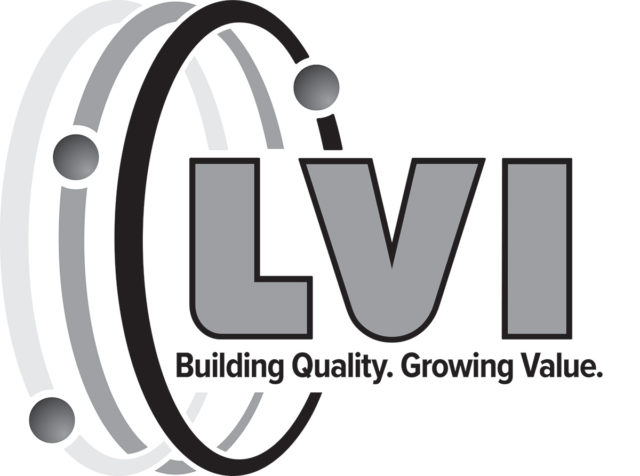To protect public health and a $26 billion dairy industry, Wisconsin Governor Jim Doyle today used the power of his veto pen to stop a bill that would have legalized the sale of unpasteurized milk from farms in America’s Dairyland. “I recognize that there are strong feelings on both sides of this matter, but on balance, I must side with the interests of public health and the safety of the dairy industry,” Doyle said in a statement.
Senate Bill 434 passed the Senate in the final minutes of the legislative session on April 23, with overwhelming support compared to a similar bill introduced five years ago.
Although it would have provided the legal right for dairy producers to sell unpasteurized milk to consumers under only a one-year trial program, expiring in December 2011, dairy farmers, dairy processors, veterinarians, health officials and medical professionals did not want to take the chance of exposing the state to the known risks associated with raw or unpasteurized milk.
At a press conference in the Wisconsin State Capitol last Friday they asked Governor Doyle to veto the bill.
“From a dairy industry perspective this raw milk bill is a step backward from decades of understanding dairy pathogens, from a growing sophistication in safety monitoring and regulation in the dairy industry and constant improvement in product handling and manufacture,” said John Umhoefer, executive director of the Wisconsin Cheesemakers Association. “Wisconsin has grown its dairy industry with the promise of providing safe, wholesome dairy products to consumers and we want to keep that promise into the future.”
Wisconsin dairy producer Bob Topel reminded the governor of the support he’s given the state’s dairy industry over the last seven years.
“Eight years ago Wisconsin dairy industry was in decline...but through Governor Doyle’s administration and the implementation of many of the policies that he put in place, such as the livestock siting law and the investment tax credits for both producers and processors, we’ve seen a major turn around in the state’s dairy production,” Topel said. “Dairy producers have invested well over a billion dollars in new facilities and technologies and improvements since 2003. Milk production has increased over 14 percent from 2004 to 2009.”
He added, “We can’t afford to loose a major contributor to our state’s economy. Any dairy producer who suffered through the last 18 months of depression-like prices on their farm can tell you what just a small percentage of drop in demand can do to their livelihood and the industry that supports them as well.”
Doyle agreed.
“We have worked successfully over the last seven years to modernize Wisconsin’s dairy industry. An outbreak of disease from the consumption of raw milk could harm our reputation for providing healthy dairy products, and damage the entire industry,” he said in his statement.
Public health officials at the press conference related the number of illness incidences related to unpasteurized milk and shared that states that have legalized the sale of raw milk have nearly three times more outbreaks than states where sales are illegal.
Members of the coalition opposed to the bill included: Cooperative Network Association, Dairy Business Association, Wisconsin Association of Local Health Departments and Boards, Wisconsin Cheese Makers Association, Wisconsin Dairy Products Association, Wisconsin Medical Society, Wisconsin Public Health Association and the Wisconsin Veterinary Medical Association.
The National Milk Producers Federation and the International Dairy Foods Association have also spoken against the measure and criticized elected officials for downplaying the food safety risks inherent in raw dairy products. In the past few weeks, the groups urged federal lawmakers to take measures restricting such sales.
Some say the Wisconsin Legislature was premature to act with this bill as a working group was formed to study whether or not the state should allow and regulate the sale of unpasteurized milk in the future. The Raw Milk Policy Working Group is a panel of 22 members representing a wide array of stakeholders and experts in Wisconsin’s dairy industry. They will continue their charge, and another bill relating to the sale of unpasteurized milk may or may not be up for debate in the near future.
As for Senate Bill 434, the legislature may override the veto with a two-thirds vote from each of the houses. The Senate passed the vote at 25-8 and the Assembly at 60-35. Therefore, some assemblymen will need to switch their vote for the veto to be sustained. According to Casey Langan, director of public relations for the Wisconsin Farm Bureau Federation, an override has not succeeded in more than 24 years.
It seems safe to say milk sold in Wisconsin will continue to be safe for public consumption through the mandatory use of pasteurization. PD
PHOTO: Wisconsin dairy producer Bob Topel urged Governor Jim Doyle to veto raw milk bill. Photo by Karen Lee.

-
Karen Lee
- Midwest Editor
- Email Karen Lee





